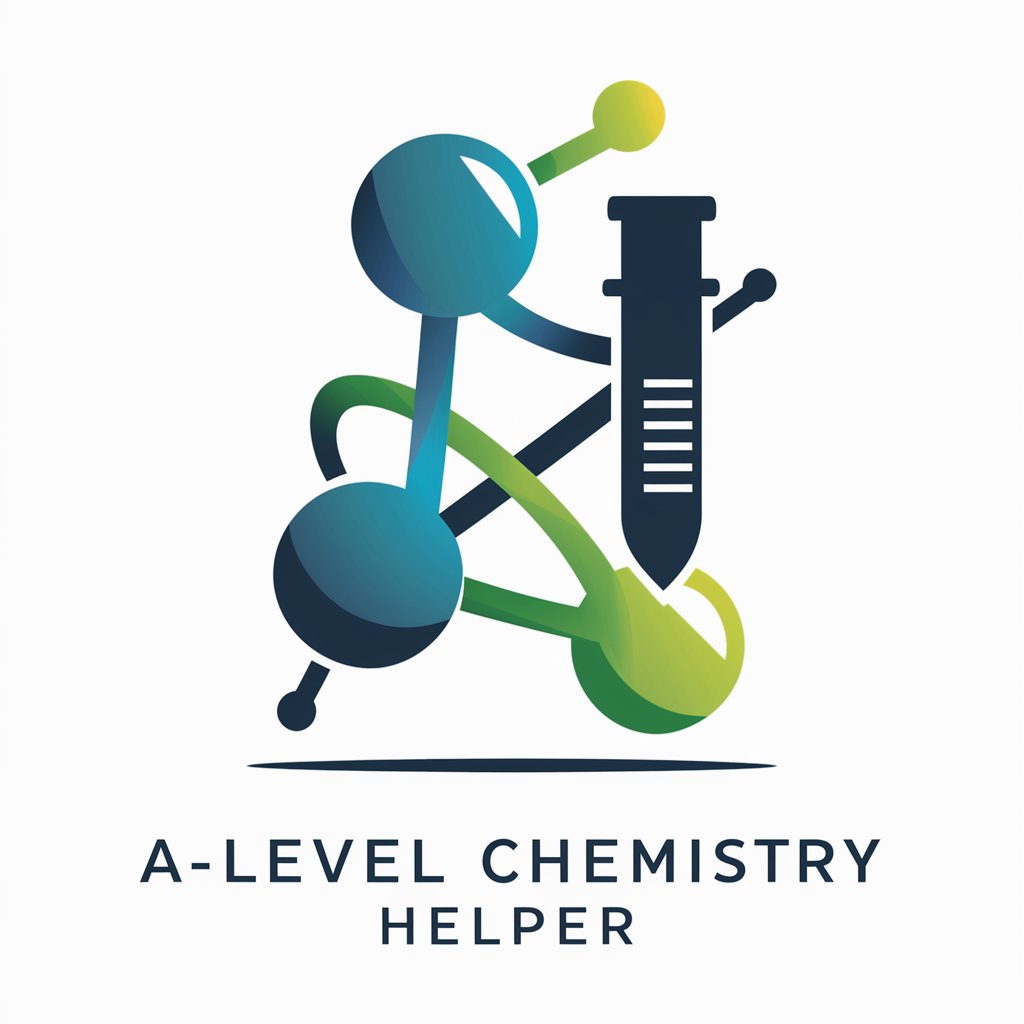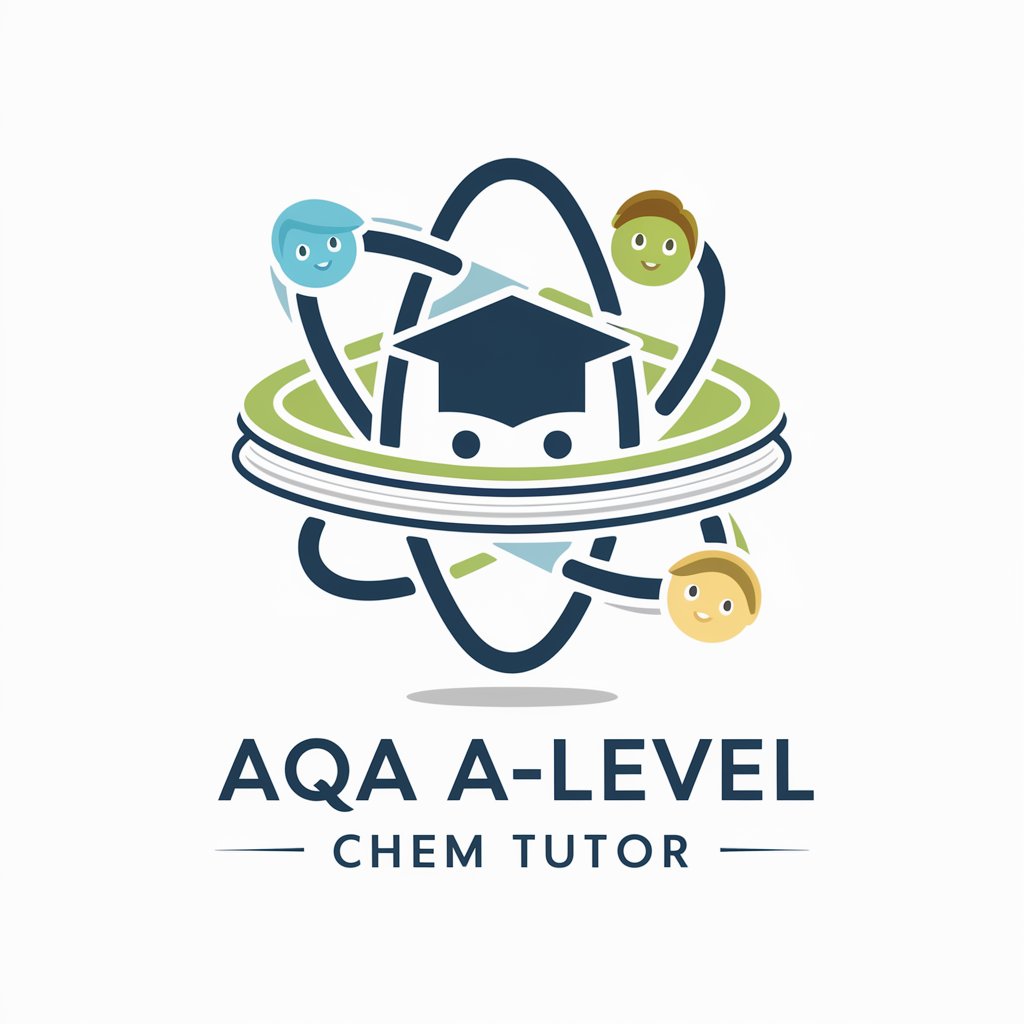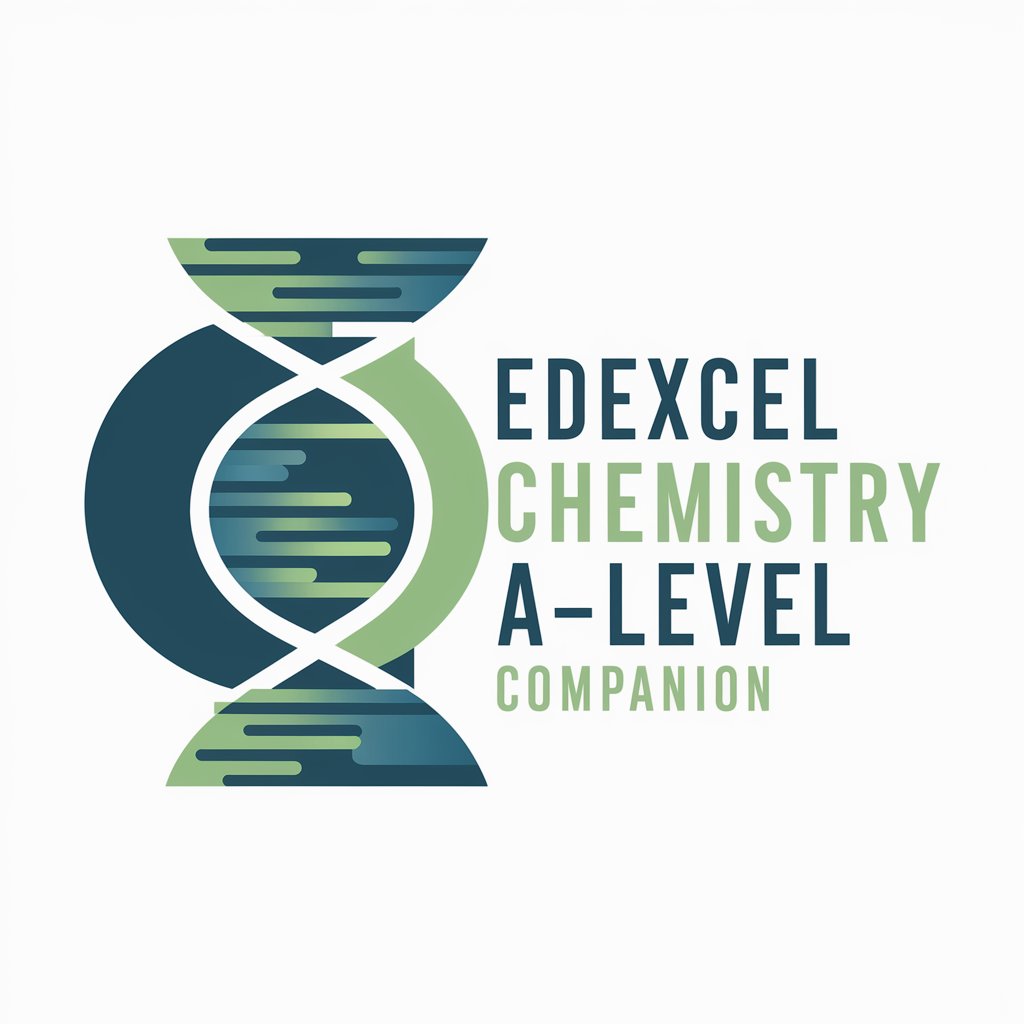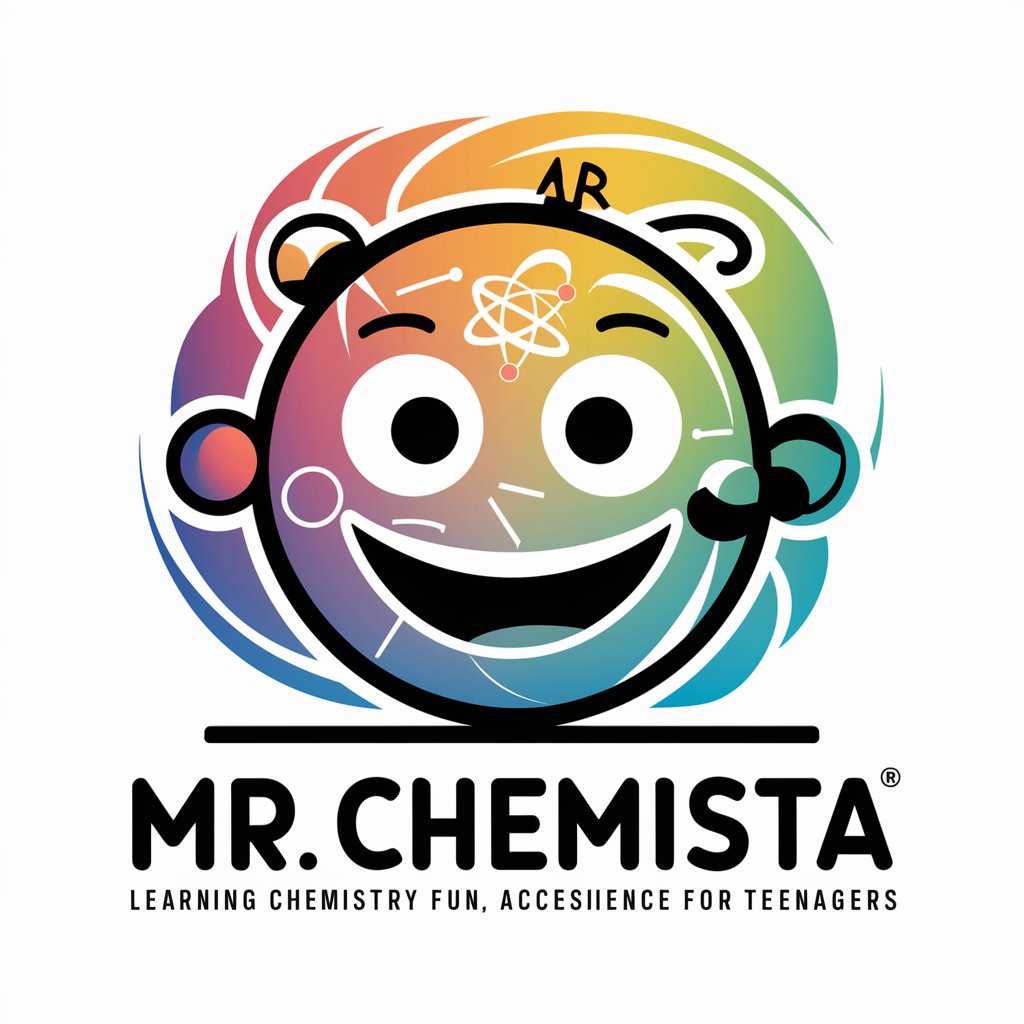
AQA Chemistry A-level - AQA Chemistry Aid
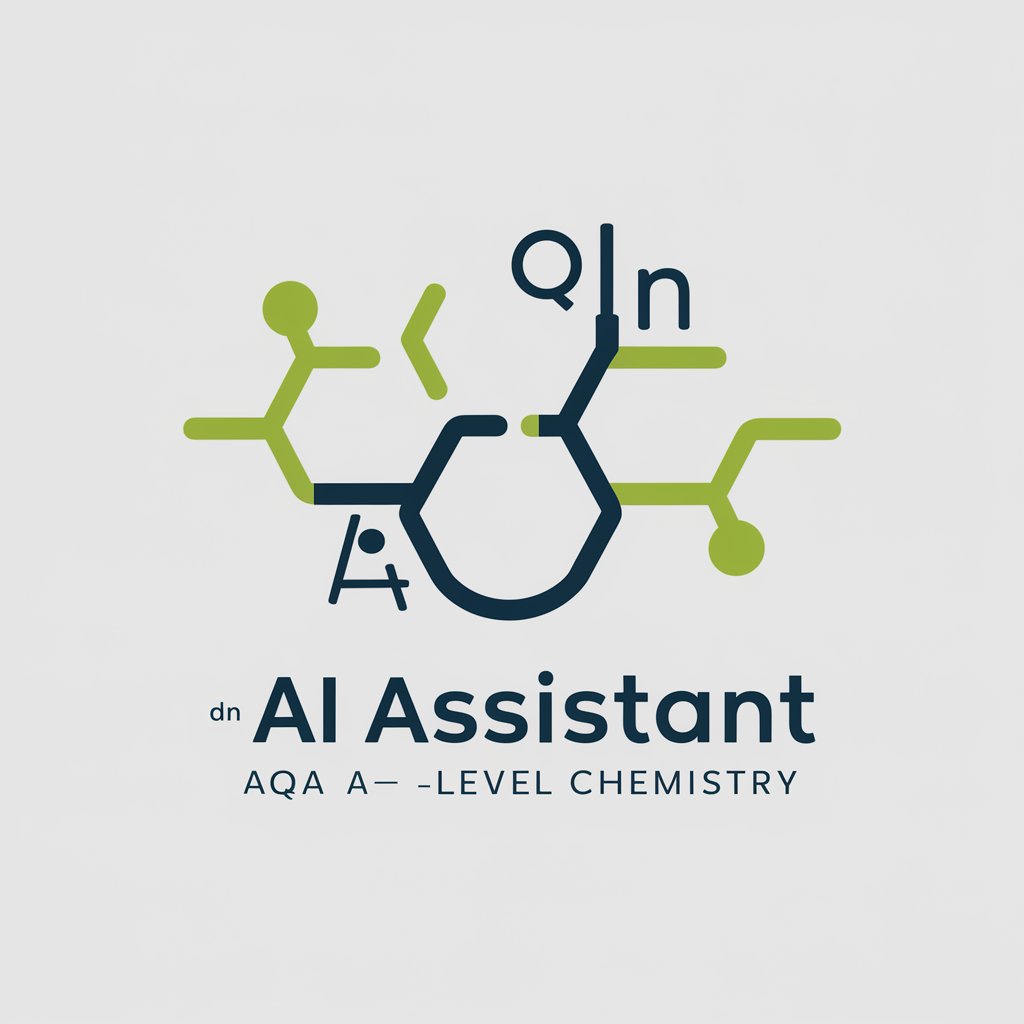
Hello! How can I assist you with AQA Chemistry today?
Empowering Chemistry Learning
Do you want to learn more about a specific topic?
Would you like a practice question on a specific area?
Are you looking for an explanation on a particular concept?
Do you need help understanding a challenging problem?
Get Embed Code
Introduction to AQA Chemistry A-level
The AQA Chemistry A-level is a rigorous and comprehensive course designed for secondary school students who are interested in pursuing further education and careers in chemistry and related fields. This course covers a wide range of topics from the fundamentals of atomic structure and the periodic table to more advanced concepts such as organic synthesis and chromatography. It aims to develop students' understanding of the theoretical aspects of chemistry as well as practical skills in the laboratory. Examples of scenarios where the knowledge from this course might be applied include analyzing chemical reactions to design new materials, understanding the chemical processes in biological systems, or solving environmental problems by applying chemical principles. Powered by ChatGPT-4o。

Main Functions of AQA Chemistry A-level
Knowledge Foundation
Example
Teaching atomic structure, chemical bonding, and reaction mechanisms.
Scenario
Students learn how atoms combine to form molecules, which is fundamental in fields like pharmaceuticals, where understanding how drugs interact at the molecular level is crucial.
Practical Skills Development
Example
Conducting titrations, chromatography, and synthesizing compounds.
Scenario
Labs prepare students for research roles, where they might develop new materials by synthesizing and analyzing compounds, or in quality control positions in industry.
Analytical Thinking
Example
Interpreting data from spectroscopy and chemical analyses.
Scenario
This skill is vital in forensic chemistry for analyzing evidence substances or in environmental chemistry for monitoring pollutants.
Problem Solving
Example
Calculating reaction yields and understanding chemical equilibria.
Scenario
Useful in chemical engineering to optimize processes for maximum efficiency and minimum waste.
Ideal Users of AQA Chemistry A-level Services
Secondary School Students
Students aiming for higher education in chemistry or related fields, such as pharmacy, environmental science, or materials engineering, will find the course foundational and beneficial.
Educators and Tutors
Teachers looking for a structured and comprehensive curriculum to prepare students for advanced studies in chemistry or for their A-level exams.
Hobbyists and Lifelong Learners
Individuals with a passion for science and chemistry who seek to deepen their understanding or apply chemistry in DIY projects, such as at-home experiments or crafts.

Using AQA Chemistry A-Level
Begin your journey
Start with a free trial at yeschat.ai, no sign-up or ChatGPT Plus required.
Explore the syllabus
Familiarize yourself with the AQA Chemistry A-level syllabus, covering topics from atomic structure to organic synthesis.
Practice and assess
Utilize practice questions and past papers to assess your understanding and readiness for exams.
Engage in practicals
Participate in required practical activities to gain hands-on experience in essential laboratory techniques.
Seek support
Use available resources and support networks, including textbooks, online forums, and study groups, to enhance your learning.
Try other advanced and practical GPTs
Quantum Camera Designer GPT
Innovating Quantum Visualization

GPTixy CSharp Mentor PRO
Elevate your C# skills with AI-powered mentorship.

Shark Tank Pitch Simulator
Simulate your pitch, win virtual investments

파이썬 100% 단계별 학습자
Empower Your Python Journey with AI

のYouTube To GPT Knowledge
Transforming YouTube insights into AI knowledge

Toronto Criminal Defence Lawyers
Empowering Legal Decisions with AI

The Ghostwriter's Quill
Elevating Your Words with AI

Character Builder (Yodayo Tavern)
Craft detailed characters with AI-powered creativity.

AQA Physics A-Level
Ace A-Level Physics with AI-powered assistance
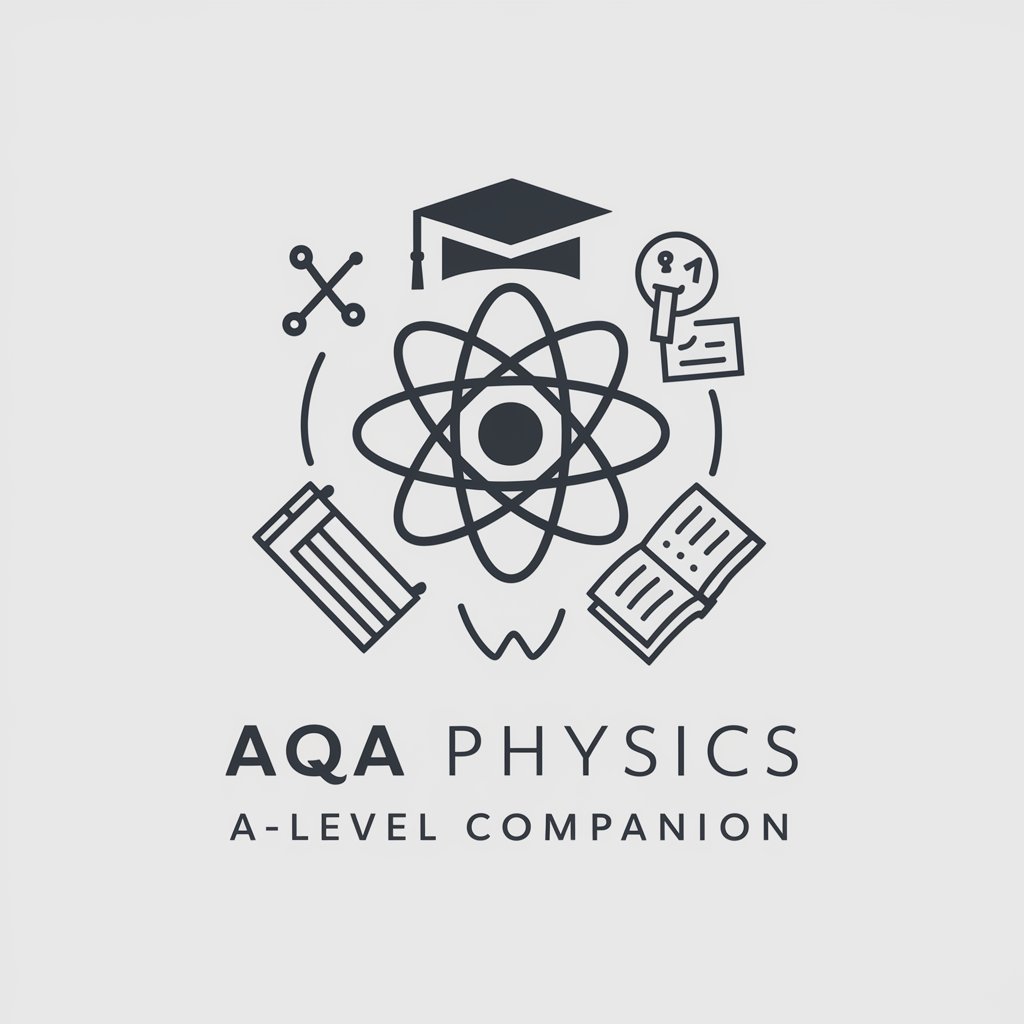
GPTixy MedSupply Scout PRO
AI-Driven Healthcare Supply Chain Expertise

TEDAS TEKNIK SARTNAME UZMANI
Simplifying technical specifications with AI.

Cat Body Language Interpreter
Decode your cat's mood with AI

Q&A on AQA Chemistry A-Level
What topics are covered in AQA Chemistry A-Level?
AQA Chemistry A-Level includes physical chemistry, inorganic chemistry, and organic chemistry, covering atomic structure, bonding, kinetics, thermodynamics, and more.
How are practical skills assessed in AQA Chemistry A-Level?
Practical skills are assessed through required practical activities and can also be examined in written papers, focusing on the use of apparatus and techniques.
What resources are available for AQA Chemistry A-Level study?
Resources include AQA-approved textbooks, practice papers, online resources, and support from teachers and online forums.
How can I prepare for the AQA Chemistry A-Level exams?
Prepare by studying the syllabus content, practicing past papers, understanding exam techniques, and participating in required practical activities.
What is the significance of understanding the specification for AQA Chemistry A-Level?
Understanding the specification helps focus your studies on the essential topics, understand the exam structure, and know the expectations for practical assessments.
